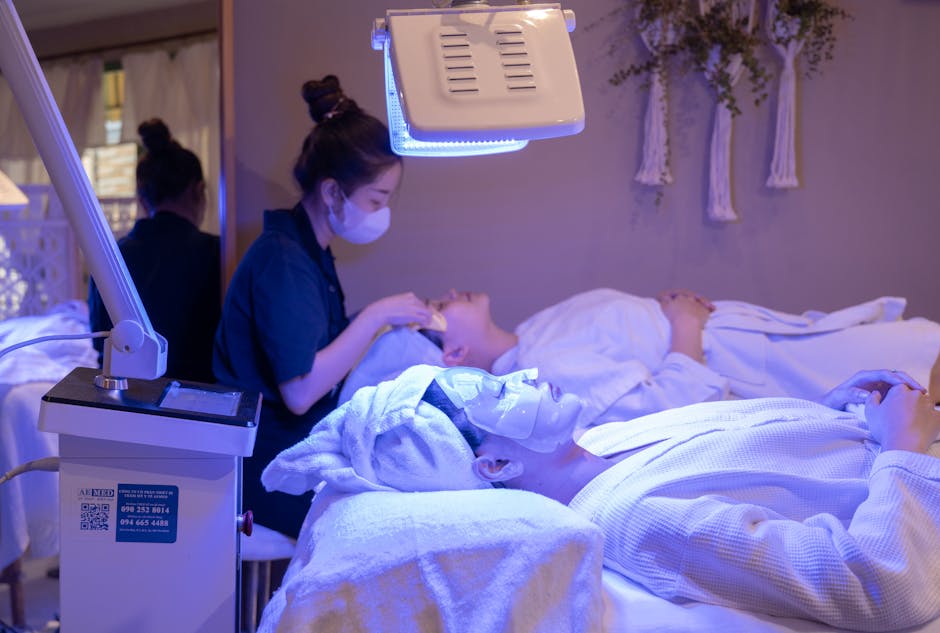7 RPA Solutions Transforming Healthcare Workflow Efficiency
In the rapidly evolving landscape of healthcare, the integration of Robotic Process Automation (RPA) solutions has become instrumental in optimising operational efficiency.
This article presents an overview of seven RPA solutions that are revolutionising healthcare workflow management.
These solutions encompass a range of critical functions, including patient registration, claims processing, appointment scheduling, billing, data management, prescription refill processing, and compliance documentation.
By leveraging RPA technology, healthcare organisations are able to streamline processes, reduce errors, and enhance overall productivity.
This concise guide aims to provide a comprehensive understanding of the transformative potential of RPA in healthcare, empowering stakeholders to make informed decisions and drive operational excellence.
Key Takeaways
- RPA technology improves accuracy and efficiency in patient registration and data entry, reducing wait times and enhancing patient satisfaction.
- RPA solutions streamline claims processing and billing, reducing administrative burden, improving accuracy, and accelerating revenue cycles.
- RPA automates appointment scheduling and communication, improving resource allocation, reducing errors, and enhancing patient satisfaction.
- Automation through RPA solutions improves efficiency in revenue cycle management, automating billing and claims processing, reducing errors, and ensuring accurate coding and documentation.
Streamlining Patient Registration

One significant way RPA solutions are transforming healthcare workflow efficiency is by streamlining patient registration through automated processes. By leveraging RPA technology, healthcare facilities can improve accuracy and reduce wait times during the registration process. RPA solutions can automatically verify patient insurance information, accurately input personal details, and cross-reference data with existing records, eliminating errors and minimising the need for manual intervention. This not only ensures that patient information is accurately captured but also expedites the registration process, reducing wait times and enhancing overall patient satisfaction.
Automating patient registration with RPA not only benefits patients but also significantly impacts the operational efficiency of healthcare providers. By streamlining the registration process, staff can focus on other critical tasks, leading to improved productivity and resource allocation. This automation also enables healthcare facilities to reallocate human resources to more complex and high-value activities, ultimately enhancing the quality of patient care.
As patient registration represents the initial point of contact in the healthcare journey, optimising this process through RPA sets the stage for subsequent efficient and accurate healthcare delivery.
Transitioning from patient registration, let’s now delve into the automation of claims processing.
Automating Claims Processing

Automating claims processing in healthcare facilities through RPA solutions significantly improves operational efficiency and enhances the accuracy of billing and reimbursement processes. Claims automation allows for a more streamlined and efficient processing system, reducing the potential for errors and delays in reimbursement, which ultimately benefits both healthcare providers and patients.
| Benefits of Claims Automation || — | — | — | — || Increased Efficiency | Enhanced Accuracy | Cost Reduction | Improved Compliance |
By automating claims processing, healthcare facilities can achieve increased efficiency in processing a large volume of claims, resulting in faster turnaround times and reduced administrative burden. This not only leads to enhanced accuracy in billing and reimbursement but also reduces the potential for errors, ensuring that claims are processed correctly the first time. Moreover, automation can significantly reduce operational costs and improve compliance with regulatory requirements, ultimately leading to a more efficient and sustainable healthcare system.
Transitioning from automating claims processing to enhancing appointment scheduling, the integration of RPA solutions continues to revolutionise the healthcare industry by optimising various workflows.
Enhancing Appointment Scheduling

With the integration of RPA solutions, healthcare facilities can streamline appointment scheduling, optimising the allocation of resources and improving patient access. RPA can be employed to automate patient communication for appointment reminders, confirmations, and rescheduling, reducing the burden on administrative staff and ensuring higher appointment attendance rates. Furthermore, RPA can optimise workflow by intelligently assigning appointments based on various factors such as the type of visit, required resources, and healthcare provider availability. This ensures that the right resources are allocated at the right time, enhancing overall operational efficiency.
In addition, RPA can facilitate seamless integration with electronic health records (EHR) systems, allowing for real-time updates and coordination between scheduling and patient information. This not only improves the accuracy of scheduling but also enhances patient care by providing clinicians with up-to-date patient information before appointments.
By leveraging RPA for appointment scheduling, healthcare facilities can achieve greater control over their scheduling processes, leading to improved patient access, reduced wait times, and optimised resource allocation. This, in turn, contributes to a more efficient and patient-centric healthcare ecosystem.
Transitioning into the subsequent section about ‘optimising billing and invoicing’, RPA solutions also play a pivotal role in transforming the financial aspects of healthcare operations.
Optimising Billing and Invoicing

Transforming the healthcare industry, RPA solutions optimise billing and invoicing processes, enhancing accuracy and efficiency in financial transactions. By automating repetitive tasks such as claims processing, RPA reduces the potential for human error and ensures coding accuracy, leading to fewer claim denials and quicker reimbursement. This not only streamlines the reimbursement process but also minimises the risk of compliance issues, ultimately improving the overall financial health of healthcare providers.
| Benefits of RPA in Billing and Invoicing |
|---|
| Enhanced Accuracy |
| Efficient Claims Processing |
| Streamlined Reimbursement |
RPA’s ability to validate billing codes against patient records and insurance policies significantly reduces coding errors, ensuring that claims are submitted accurately the first time. It also expedites the reimbursement process by swiftly processing claims, leading to improved cash flow for healthcare organisations.
The automation of billing and invoicing tasks not only accelerates revenue cycles but also enhances the accuracy of financial transactions, ultimately fostering better financial management within healthcare institutions.
Moving forward to the next subtopic, let’s delve into how RPA solutions are improving data entry and management within the healthcare sector.
Improving Data Entry and Management

By streamlining data entry and management processes, RPA solutions are revolutionising the healthcare industry’s operational efficiency. Implementing RPA in healthcare organisations has led to significant improvements in data accuracy and workflow automation, resulting in error reduction and enhanced productivity.
Here are key ways RPA is transforming data entry and management in healthcare:
-
EHR Integration: RPA solutions seamlessly integrate with Electronic Health Record (EHR) systems, allowing for efficient transfer of patient data across different platforms. This integration reduces the likelihood of errors that can occur during manual data entry and ensures that patient information is consistently accurate and up to date.
-
Workflow Automation: RPA automates repetitive data entry tasks, freeing up healthcare professionals to focus on more critical aspects of patient care. This automation not only accelerates data processing but also minimises the risk of human error, ultimately improving the overall quality of healthcare data.
-
Error Reduction: RPA’s ability to validate and cross-cheque data across various systems significantly reduces the occurrence of errors in data entry and management processes. This enhanced accuracy contributes to better decision-making and improved patient outcomes.
Accelerating Prescription Refill Requests

RPA solutions accelerate prescription refill requests by automating the process and expediting the transfer of necessary information between healthcare providers and pharmacies. Through telemedicine integration, patient consultations are seamlessly connected to the prescription refill process, allowing for efficient communication of medication needs. This integration streamlines the workflow by enabling healthcare providers to electronically transmit prescription refill requests directly to pharmacies, reducing delays and minimising the potential for errors associated with manual processes.
Furthermore, RPA solutions support remote monitoring of chronic conditions, ensuring that prescription refill requests are based on accurate and up-to-date patient health data. By automating the monitoring of patients with chronic conditions, RPA can pre-emptively identify the need for prescription refills, thereby improving patient outcomes and satisfaction. This proactive approach not only expedites the refill process but also minimises the risk of treatment interruptions for patients with ongoing medication needs.
Facilitating Compliance Documentation

The integration of automation technology within healthcare workflows enables the seamless facilitation of compliance documentation, ensuring regulatory adherence and operational efficiency. This facilitates the healthcare industry’s ability to maintain accurate and detailed records, which is crucial for compliance with strict regulatory requirements.
Here’s how automation technology achieves this:
-
Audit trail: Automation technology provides a comprehensive audit trail of all activities within the healthcare system. This allows for the tracking and monitoring of every action taken, ensuring transparency and accountability in compliance documentation.
-
Electronic signatures: By incorporating electronic signatures into the documentation process, automation technology ensures the authenticity and integrity of the records. Electronic signatures provide a secure and legally recognised method for signing off on compliance documentation, streamlining the approval process while maintaining compliance standards.
-
Data encryption and protection: Automation technology includes robust data encryption and protection measures, safeguarding compliance documentation from unauthorised access or tampering. This ensures the confidentiality and integrity of sensitive information, mitigating the risk of non-compliance.
Frequently Asked Questions
How Does RPA Technology Address the Issue of Patient Privacy and Security in Healthcare Workflow Processes?
Ensuring patient privacy and security in healthcare workflow processes is critical. RPA technology addresses this by incorporating patient consent mechanisms and robust data encryption protocols. This provides a secure environment for handling sensitive healthcare data.
What Kind of Training and Support Is Required for Healthcare Staff to Effectively Implement and Utilise RPA Solutions in Their Daily Workflow?
Training requirements for healthcare staff to effectively implement RPA solutions involve comprehensive education on automation tools, understanding workflow integration, and compliance with industry regulations. Implementation support should include ongoing technical assistance, troubleshooting, and change management strategies.
Can RPA Solutions Be Customised to Accommodate the Specific Needs and Regulations of Different Healthcare Facilities and Regions?
Yes, RPA solutions can be customised to accommodate the specific needs and regulations of different healthcare facilities and regions. This customisation ensures regulatory compliance, regional adaptation, and adherence to healthcare standards, enhancing overall workflow efficiency.
How Do RPA Solutions Integrate With Existing Electronic Health Record (Ehr) Systems and Other Healthcare Software Platforms?
Integration challenges in healthcare software are akin to navigating a labyrinth. RPA solutions, like Theseus, unravel complexities by seamlessly integrating with existing EHR systems, overcoming system compatibility hurdles for workflow automation and process optimisation.
What Are the Potential Cost Savings and Return on Investment for Healthcare Organisations That Implement RPA Solutions in Their Workflow Processes?
Implementing RPA solutions in healthcare workflow processes can lead to significant cost savings and return on investment. A thorough cost analysis can reveal potential operational impact, enabling healthcare organisations to optimise resources and achieve financial efficiency.
Conclusion
In conclusion, the use of RPA solutions in healthcare has significantly improved workflow efficiency. These solutions have streamlined patient registration, automated claims processing, enhanced appointment scheduling, optimised billing and invoicing, improved data entry and management, accelerated prescription refill requests, and facilitated compliance documentation.
The implementation of these solutions has truly been a game-changer, allowing healthcare professionals to work smarter, not harder. As the saying goes, ‘time is money,’ and these RPA solutions have certainly saved both time and money in the healthcare industry.
Contact us to discuss our services now!
